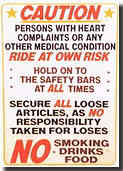Friday, April 10, 2009
Bleak Friday
I did not grow up in a religious home. Religion was at church.
I was grateful we weren't Catholic on Good Friday. It was just a day off from school. It was a big deal for my Catholic friends. Good Friday observances varied from family to family, but it was a serious day, & in some homes a very serious & somber day. They all went to church, a special liturgy. Beyond that, most of my Catholic friends were lucky if they were allowed out at all. Some homes were decorated for mourning, black drapes, black crepe around the framed picture of Jesus. Minimal talking, no joking, no playing. Meager supper.
When you think about what Christians believe happened on Good Friday, that's not so much. There are cultures where men flagellate themselves with barbed whips, & even have themselves nailed to crosses on Good Friday. Yes, nailed.
On Good Friday I always think about the practice of capital punishment; state execution. There's few crueler, more unjust examples of it than the passion story & Golgotha on Good Friday. We get an especially barbaric means of execution, crucifixion. The condemned died by asphyxiation - slow hanging. If he didn't die fast enough, if his legs kept him propped up, the executioners broke his legs. When he passed out, they stuck a spear in his side to see if he was dead. The execution was carried out in public, so the condemned was humiliated & served as a warning.
On Golgotha we find two thieves on crosses, one afraid & one bitter. We used to kill thieves in America, too. In the middle is a man being executed for - for what? He angered some influential, upper crust local leaders (nowadays they'd be self-righteous pastors, church deacons, & important Chamber of Commerce types) with peculiar behavior & wild claims. The Roman governor, a sophisticated man with some regard for Roman law, had never heard of him & didn't consider him a seditious threat to Imperial power or a criminal. But there was a spirit of unrest in the land, & if killing the troublesome guy would shut up the indigenous bosses it was no big deal to Pontius Pilate. Life was cheap in Judea. Pilate washes his hands of the matter, Jesus goes into the Roman execution routine - only the Roman occupiers were permitted to carry out death sentences. He gets knocked around, whipped, mocked, & forced to drag his own means of execution to the death site. He's just one more pathetic, condemned man to the tough Roman soldiers (probably local recruits), perhaps more passive than most. They all got the rough treatment.
The soldiers nail him up on the cross, he suffers terribly, he resists - he's a strong man, a man who had walked long distances & slept outdoors, who loved life & had led a rugged existence. But after awhile he surrenders & dies. His few remaining friends - several women, one disciple, & a couple of thoughtful men - take him down, clean him up, & put him in a borrowed tomb before Sabbath. & that's where the Good Friday story ends. Nobody figures he's coming back in any way, shape, form, or spirit. As far as they're concerned, he's dead.
I was grateful we weren't Catholic on Good Friday. It was just a day off from school. It was a big deal for my Catholic friends. Good Friday observances varied from family to family, but it was a serious day, & in some homes a very serious & somber day. They all went to church, a special liturgy. Beyond that, most of my Catholic friends were lucky if they were allowed out at all. Some homes were decorated for mourning, black drapes, black crepe around the framed picture of Jesus. Minimal talking, no joking, no playing. Meager supper.
When you think about what Christians believe happened on Good Friday, that's not so much. There are cultures where men flagellate themselves with barbed whips, & even have themselves nailed to crosses on Good Friday. Yes, nailed.
On Good Friday I always think about the practice of capital punishment; state execution. There's few crueler, more unjust examples of it than the passion story & Golgotha on Good Friday. We get an especially barbaric means of execution, crucifixion. The condemned died by asphyxiation - slow hanging. If he didn't die fast enough, if his legs kept him propped up, the executioners broke his legs. When he passed out, they stuck a spear in his side to see if he was dead. The execution was carried out in public, so the condemned was humiliated & served as a warning.
On Golgotha we find two thieves on crosses, one afraid & one bitter. We used to kill thieves in America, too. In the middle is a man being executed for - for what? He angered some influential, upper crust local leaders (nowadays they'd be self-righteous pastors, church deacons, & important Chamber of Commerce types) with peculiar behavior & wild claims. The Roman governor, a sophisticated man with some regard for Roman law, had never heard of him & didn't consider him a seditious threat to Imperial power or a criminal. But there was a spirit of unrest in the land, & if killing the troublesome guy would shut up the indigenous bosses it was no big deal to Pontius Pilate. Life was cheap in Judea. Pilate washes his hands of the matter, Jesus goes into the Roman execution routine - only the Roman occupiers were permitted to carry out death sentences. He gets knocked around, whipped, mocked, & forced to drag his own means of execution to the death site. He's just one more pathetic, condemned man to the tough Roman soldiers (probably local recruits), perhaps more passive than most. They all got the rough treatment.
The soldiers nail him up on the cross, he suffers terribly, he resists - he's a strong man, a man who had walked long distances & slept outdoors, who loved life & had led a rugged existence. But after awhile he surrenders & dies. His few remaining friends - several women, one disciple, & a couple of thoughtful men - take him down, clean him up, & put him in a borrowed tomb before Sabbath. & that's where the Good Friday story ends. Nobody figures he's coming back in any way, shape, form, or spirit. As far as they're concerned, he's dead.
Comments:
<< Home
"If a nation expects to be ignorant and free, in a state of civilization, it expects what never was and never will be." Thomas Jefferson
We were not allowed to play or watch TV from 12-3 p.m. when I was growing up. But the reward was the Good Friday service at St. Agnes Church in Clark, where the congregation got to play the part of the crowd in the Gospel reading and I was able to yell "crucify Him" with a little tinge of bloodlust.
Wow, you had it tough. Mrs. Contrarian probably had to do the Stations on her knees - twice, the second time praying in Gaelic.
Post a Comment
<< Home















